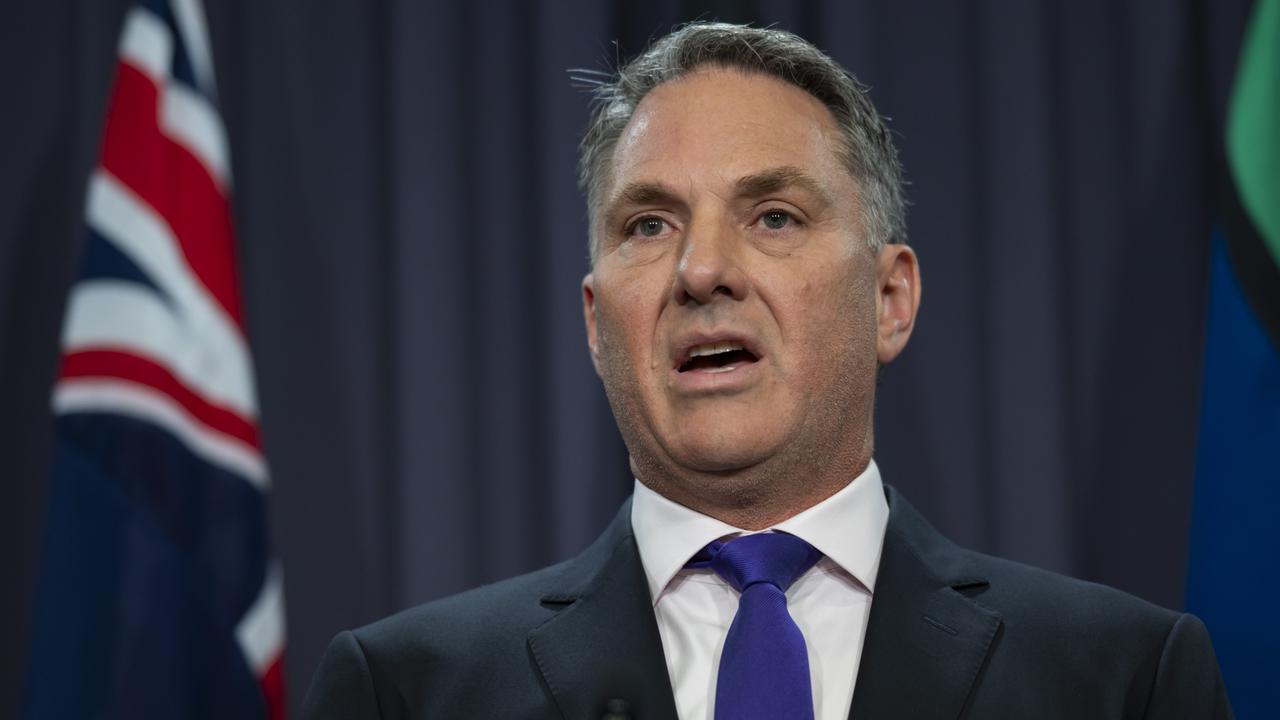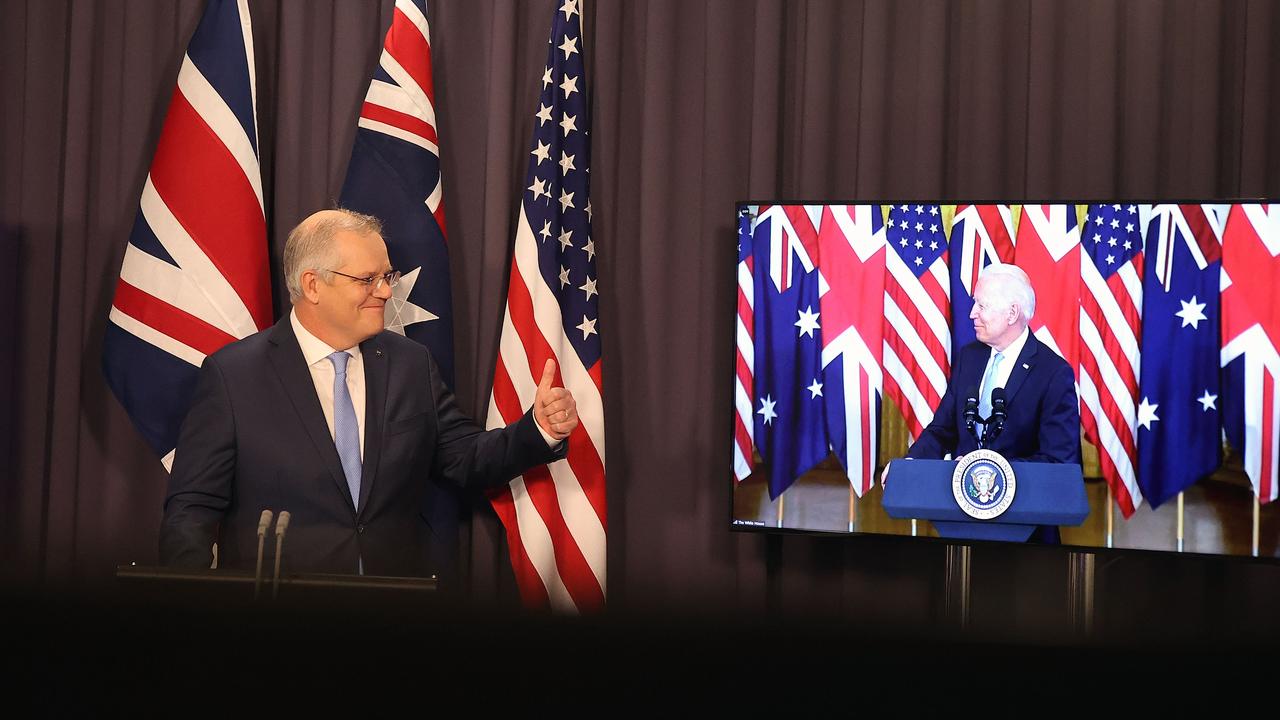Richard Marles says US’ AUKUS news not a blow, as Malcolm Turnbull blasts deal
The Defence Minister has sought to allay fears over the $368bn AUKUS deal, after the US confirmed it would fall short on its part of the agreement.
The Defence Minister has rejected claims the United States is backsliding on its AUKUS commitments, after news broke the Biden administration was set to order just one of the planned submarines in 2025, instead of the planned two.
Under the Biden administration’s defence budget request, the US navy said the move would push a projected saving of $US4bn into future years.
But it’s raised concerns about the timeline in which Australia would receive its first nuclear powered submarine.
Former prime minister Malcolm Turnbull earlier suggested Australia might never acquire the submarines it was promised under the trilateral deal, but Richard Marles said he wasn’t concerned by the news out of Washington.
Mr Marles said the most important thing was the Biden administration had made an $11bn budget commitment to grow the industrial capacity within the US over the next five years to produce Virginia-class submarines, which would mean an increase over that time in the number of vessels being produced.

“That’s what we need to see. That’s as expected,” he told ABC News.
“The fact that the industrial base is tight in this year is something that we already understood and so we welcome the fact that we are seeing an increased commitment of funding over the next five years.”
He said the AUKUS relationship was strong, and denied the US Navy’s 45-day review of all naval shipbuilding threw a shadow of doubt over the deal.
“We couldn’t be happier with how the American government is responding to the agreement that we all made a year ago in terms of the decisions that they are making,” Mr Marles said.
“Over the course of the next decade and beyond, we’re going to watch governments – quite legitimately – undertake reviews of their own circumstances and their own needs going forward.
“We’ve done our own review over that period of time, but none of those things put into question the fact that AUKUS is going to be followed through on.”
Earlier, Mr Turnbull told ABC Radio Australia had been “mugged by reality” and cast doubt on the US’ ability to ramp up its production in time to provide the promised submarines.
“The reality is the Americans are not going to make their submarine deficit worse than it is already by giving or selling submarines to Australia and the AUKUS legislation actually sets that up,” he said on Wednesday morning.
“We are bobbing along as a cork in the maelstrom of American politics.

“Unless the Americans are able to dramatically change the pace at which they’re producing submarines, and there’s no reason to believe they will be able to do so, we will not ever get the submarines that were promised.
“This is what happens when you give up when a sovereign nation abandons its sovereignty.”
Under the deal inked a year ago, the first three US nuclear power submarines would be transferred by early 2030s should the US meet its own production targets of 2.3 vessels per year, up from a current average of 1.2.
From there, domestic production on the remaining vessels will commence in South Australia.
The Pentagon sought to downplay concerns the budget cut would undermine the AUKUS commitment when asked on Tuesday.
Rear Admiral Ben Reynolds, Under Secretary of the navy, insisted production would be back on track by 2028.
“We’re having regular exchanges with the Australians on the — the timing and the shape of those investments. So it’s an open dialogue,” he said.
The budget request also included a US$11bn for additional investment over the next five years for the domestic submarine industry.
Australia will also provide $3bn to the US submarine industrial base to increase their sustainment and production.

Prime Minister Anthony Albanese was adamant the US decision would not affect the AUKUS agreement.
“Our plans are very clear going forward. We have an agreement that was reached with the United States and the UK,” he said.
“That legislation went through the US Congress last year. That was a product of a lot of hard work.
“It is in Australia’s interest to have a defence of our nation that is appropriate.”
Opposition Leader Peter Dutton, who was the defence minister at the time the pact was first announced, conceded AUKUS would face “difficulties from time to time”.
“But they will be ironed out because, in the end, our three countries coming together make us stronger than if we stand apart,” he said.
“And for a very uncertain period … we live in the most precarious period since the Second World War, we need this capability, and we’ll continue to work with our US partners and our UK partners to make sure that the capability can be delivered as soon as it can.”



